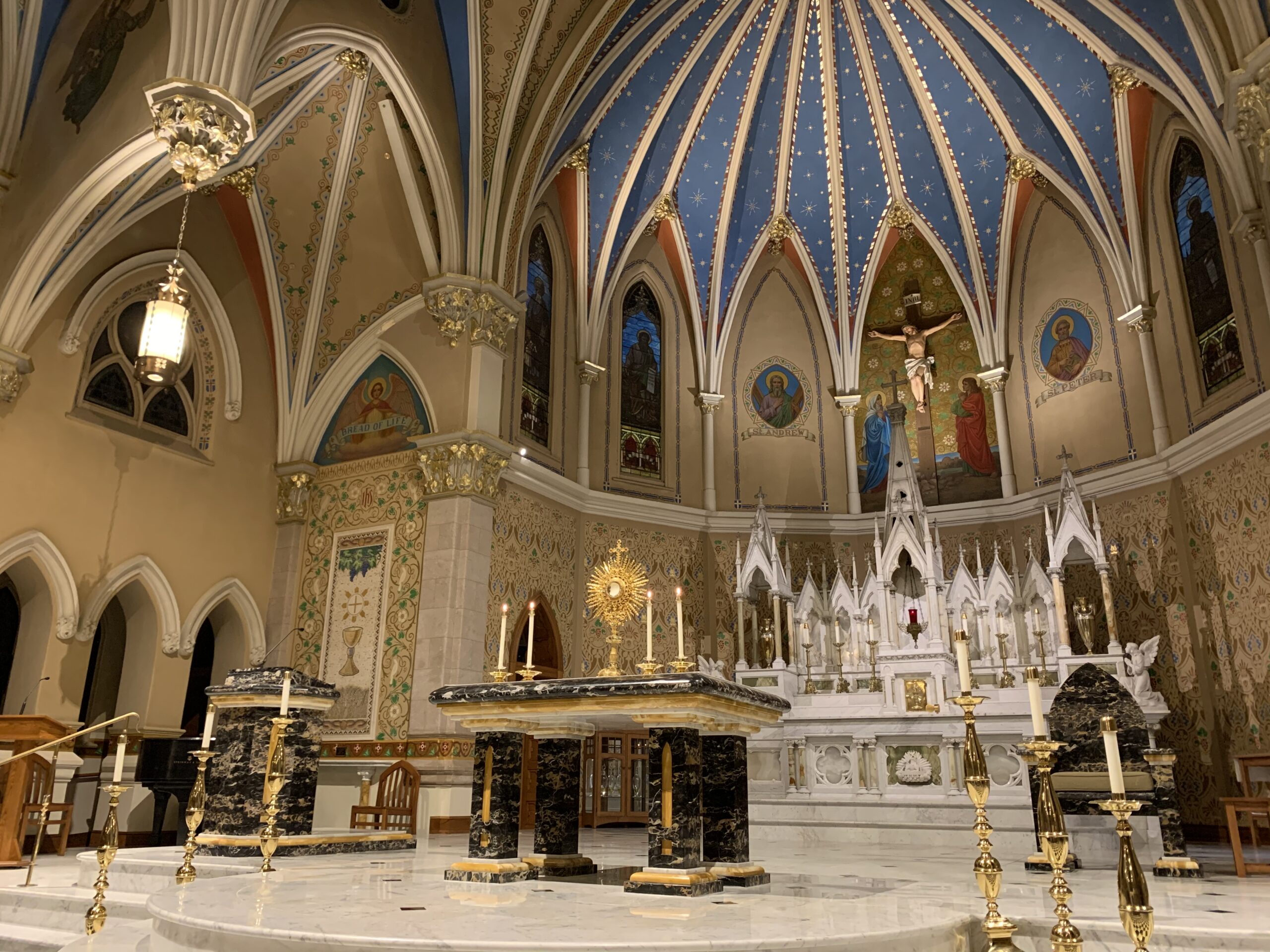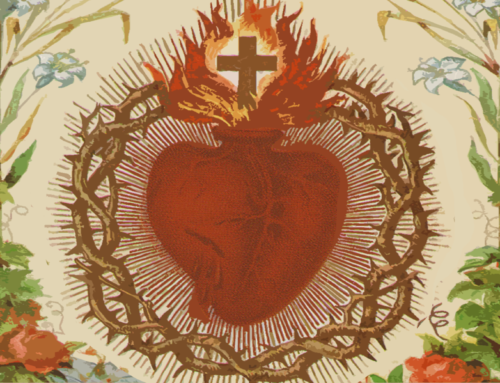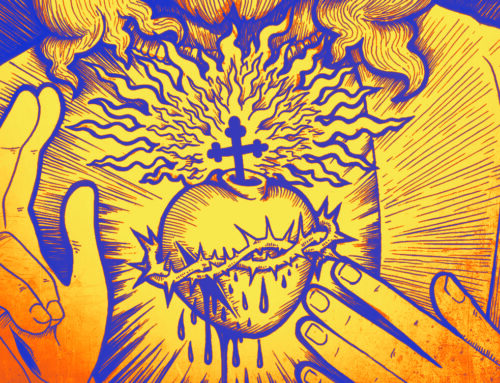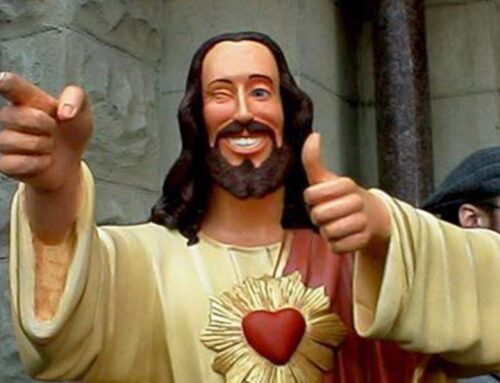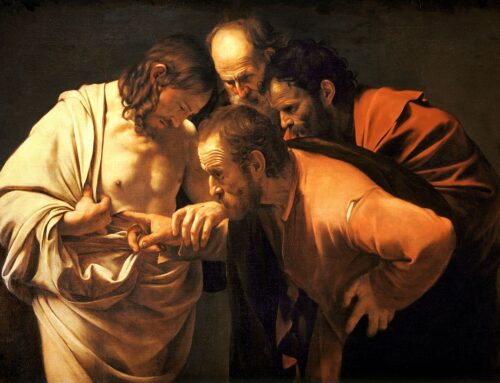Tonight, we take a breath. A deep breath.
We need it. We need to make the time to breath in the Lord’s power and presence, especially here as we continue to adore Him in the Blessed Sacrament.
The Eucharist looks so still — and yet it is alive and breathing. It is alive because He is alive. The Host is alive with the Breath of God: the Breath of Jesus risen from the dead.
As we adore Him here in the Monstrance — we take a deep breath with and in Jesus. His life is ours. His breath is ours. He “in-spires” us — puts the breath of the Holy Spirit into us.
St. Paul once wrote that all Scripture is “in-spired” by God. One beautiful translation even rephrases it to read that “all Scripture is God-breathed.”
Sacred Scripture begins with a breath — The second verse of the book of Genesis reveals that God’s Spirit… his “Ruach”… his Breath… hovered over the waters at the dawn of creation.
When the LORD first formed man out of dust, he “breathed into his nostrils the breath of life” — and so the man became a “living soul.”
Over and over again throughout salvation history, breath appears as an ongoing theme — a clear image for the presence of God as the source and foundation for all life.
Psalm 104 says that if “God hides His face from His creatures, and takes away their breath, they die and return to their dust.” We depend on Him completely. You are breathing right now because He desires you to be precisely here. We cannot exist without Him constantly holding us in being!
And what is our being anyway? It also is a breath — barely anything at all. We are very nearly nothing. We come and go in a matter of a few decades.
The Psalms groan under this burden of mortality — “Lord, what is man that you take notice of him; the son of man, that you think of him? Man is but a breath, his days are like a passing shadow.”
And again — “Behold, you have made my days a few handbreadths, and my lifetime is as nothing before you. Surely all mankind stands as a mere breath!”
One day, our life breath will be taken from us. And we will return to the dust. It’s the way of all flesh. It’s the wages of sin…
And yet, we can still face the breathless grave with confidence and with hope.
Why? Where does our hope come from?
Look to the Monstrance!
Look to Jesus!
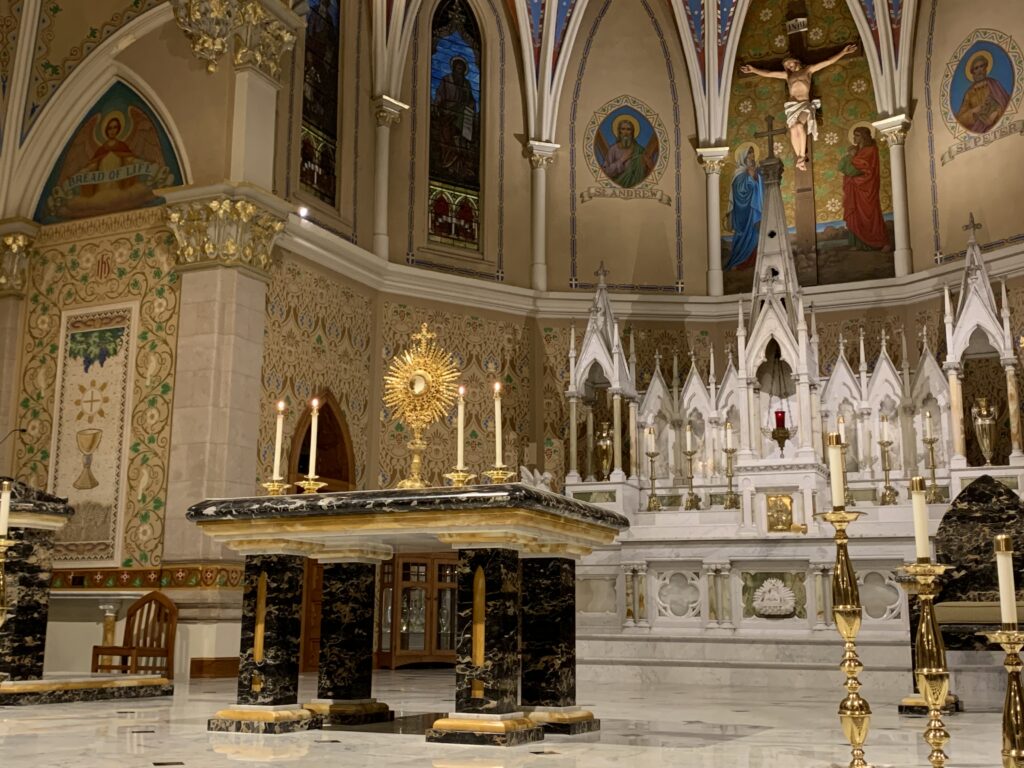
In Jesus Christ, we find a God who entered into our human condition, who in fact assumed our lowly nature. Jesus has lungs. Think of that for a moment! On that first Christmas night — the infant Jesus filled his lungs for the first time with the very air He Himself designed to sustain us! He would fill those lungs for 33 years on this earth, filling them and emptying them to preach the Truth, filling them and emptying them to proclaim sins forgiven, filling them and emptying them to hike up and down the Holy Land, declaring the coming of the Kingdom of God.
It’s this same Jesus who was more than willing to be suffocated for our sake on the Cross. There, His breathing first became labored, then became practically impossible, and finally… it came to a horrible halt. Good Friday was, in fact, a kind of deflation. God stopped breathing.
He expired.
As we read in Luke’s account of the Passion: “Jesus cried out in a loud voice, ‘Father, into your hands I commend my spirit’ and when he had said this he breathed his last.”
The same breath that breathed over the waters of Creation was stilled by human cruelty and jealousy on Calvary.
Take a deep breath and let that sink in!
Why did he do this? Well — to counteract and disarm all those countless times that we have drawn breath in order to abandon God. How many wasted breaths we’ve spent while choosing something less than holy, something that leads us away from the God who breaths His love onto us constantly?
It’s an old story. Think back to that first doomed conversation between Eve and the serpent! How much wasted breath! And where was Adam? Holding his breath right next to Eve as the Devil tricked mankind into the suffocation of sin.
On the Cross, Jesus Himself lovingly underwent the suffocation of sin on our behalf. He killed what kills us. He laid down His life in order to resuscitate humanity — to bring us back to life!
So when He rose from the dead on Easter morning, his glorified lungs were filled once again with that rush of life-giving wind. And what does he do with that air?
He breaths on his disciples, saying:
“Receive the Holy Spirit. Whose sins you forgive are forgiven them, and whose sins you retain are retained.” Later, on Pentecost morning, a mighty, rushing wind descended upon the disciples — filling them with power and courage. Filling them with Resurrection breath.
Our Savior is still breathing. In the proclamation of the Scriptures, he is breathing. In the celebration of the Sacraments, he is breathing. In the living, breathing teaching authority of the Pope and the college of bishops, he is breathing. But most especially, Christ continues to breath in the breaking of the Bread in the Holy Mass.
There, the priest, standing in persona Christi speaks those eternal words over the bread and the chalice — his breath comes upon them, and they become the Bread of Life and the Chalice of Salvation — The Body and Blood of Jesus — Really, Truly Substantially Present for us.
Whenever we adore the Lord, exposed in the Blessed Sacrament, it’s as if we are pausing in the middle of the Mass, just to take a deep breath, and look at God’s love. To look at Jesus, totally emptied and given in the Sacred Host.
Breath in deep, therefore. Receive the peace of Christ being exhaled over you here and now.
